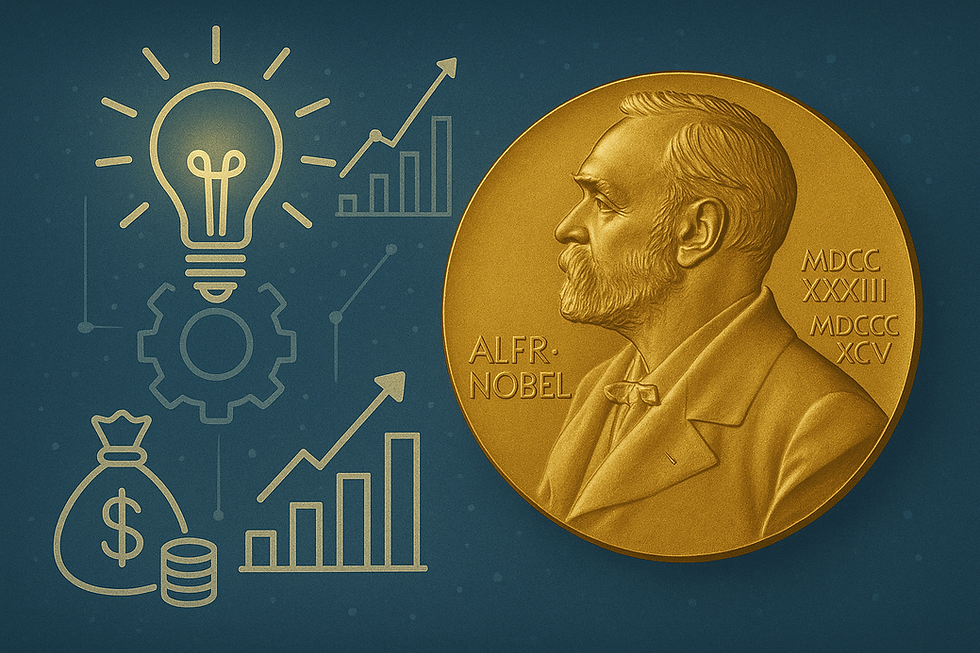SUSTAINABILITY AND RETAIL
- axisinnovation
- Dec 14, 2021
- 6 min read
In the retail sector, sustainability is becoming one of the most important issues for consumers and corporations alike. Whether it is new or used items, reduced impact packaging, or traceability of origins, consumers worldwide are increasingly aware of the impact of their lifestyles and shopping habits on the planet. They expect companies to demonstrate support for social and environmental matters and are putting their money where their values are. On the corporate side, retail companies are making sustainability and ESG a core value of their future business and growth.
In this blog, we’ll outline why sustainability is so critical in retail today, some major trends for 2022, and highlight some exciting Israeli startups at the forefront of sustainable retail.
The Sustainable Challenge
The textile industry represents nearly 10% of greenhouse gas emissions globally and approximately 92 million tonnes of waste each year. The impact on sustainability is so significant because of where the materials come from and how they are made, using an enormous amount of water and toxins. Another main driver of emissions caused by retail are due to the food industry because of animals and farming practices. In addition, the transport of imported food products also generates a large amount of greenhouse gases. Manufacturing, logistics, and freight transport contribute further to increased greenhouse gas emissions.
Retail corporations are striving to address these challenges by re-evaluating their supply chain, energy sources, waste production, and social responsibility guidelines. In recent years, some companies have adopted corporate social responsibility (CSR) measures to reduce their impact on the environment and are making bold steps to reducing their carbon footprint. Let’s take a look at the sustainability activities from some of the world’s largest retailers.
Amazon has made many steps towards more sustainable business practices. In 2019, Amazon founded The Climate Pledge, with the goal to be net zero carbon across all of its operations by 2040. As part of this commitment, Amazon plans to make 50% of its shipments net zero carbon by 2030 through its Shipment Zero policy. In addition, Amazon plans to power its activities with 100% renewable energy by 2025. The company also intends to purchase 100,000 electric delivery vehicles, invest $100 million in climate change mitigation measures and reforestation initiatives, and $2 billion to help develop decarbonisation and nature conservation technologies and services. Amazon has also established the Frustration-Free Packaging program in order to promote manufacturers to have their products packaged in 100% recyclable, easy-to-open packaging ready to be shipped to customers with no additional shipping box needed.
Apple has made significant strides in its environmental efforts by moving to carbon neutrality as a company and committing to do likewise throughout its supply chain and for the lifespan of its products. So far, over 110 of its suppliers, in all industries and worldwide, have pledged to switch to 100% renewable energy for all their production. While the company has been leading the industry in sourcing minerals responsibly, additional advances in sustainable materials keep moving the company further toward its goal of making its products free of the earth’s resources in the future. Apple has made significant progress as all of its suppliers’ final assembly locations for core products are 100% certified as zero waste. Moreover, Apple made a $200 million investment fund announcement to take carbon emissions out of the atmosphere and bolster sustainable forestry. Back in 2018, Apple declared that all their retail shops, data centers and corporate offices are powered by 100% clean energy. It also changes to more environmentally friendly alternatives in the materials it uses to manufacture its products. Apple says that by 2030, it will become fully carbon neutral in its overall corporate footprint, covering such areas as its supply chain, production processes and products.
Key Trends for 2022
As we move into 2022, we’ve identified 4 key trends in sustainability for the retail industry: Waste, green products, renewable energy sources and zero emissions. Each of these topics is critical for retailers as they move to a more sustainable business, and are also key areas of opportunity for startups to innovate new solutions.
1. Waste: The retail industry produces huge amounts of waste that usually ends up in landfills or that can find its way into our local ecosystems and harm animal and plant life, and companies are striving to find new ways to control and limit this.
Example: Coca Cola has committed to recovering all of the bottles it puts on the market. All of its packaging is now 100% recyclable and the company has set a global target to have every bottle or can collected and recycled by the year 2030. This was one of its most important 2020 sustainability goals, and one that pointed the way for smaller companies.
2. Green Products: By using green products (sustainable products designed to reduce their impact on the environment throughout its life cycle and beyond), life quality is improved when it comes to mortality, age and diseases, and thus families and the planet are kept safe from all hazardous chemicals. Green products also contribute to solid waste reduction, water conservation and the protection of natural resources. They can also play a role in mitigating climate change.
Example: Starbucks has committed to ensuring a healthy resource future by producing carbon-neutral green coffee and reducing water consumption use by 50% in the processing of green coffee by 2030. In the past year, Starbucks has bought nearly 600 eco-friendly mills that were distributed to coffee farms in few countries and that helped saved up to 80% of water in coffee processing.
3. Renewable Energy Sources: Companies are looking for new ways to become more sustainable by stepping up their use of renewable energy. This would assist them in conserving natural resources and ensuring a reliable supply of electricity and fuel diversification. Companies would be producing energy that has no fossil fuel greenhouse gas emissions and would lower certain kinds of atmospheric pollution.
Example: Sephora nurtures sustainable practices by seeing an opportunity to innovate in every challenge, from eco-friendly packaging and transparency of ingredients to careful energy use. All of the company’s shops, distribution centres and offices in the United States are 100% fueled by renewable energy and reduce energy consumption through their online Energy Management System (EMS) and LED lighting.
4. Zero Emissions: In order to limit warming to 1.5°C and prevent the adverse effects of climate change, the UN climate panel has stated that anthropogenic carbon emissions should be reduced by approximately 45% by 2030 and reach a “net zero” level by 2050. Many large corporations support these goals and are doing their best to cut emissions.
Example: Walmart has undertaken to meet science-based emissions reduction goals, including zero emissions from its operations by 2040 and engaging its vendors in its Project GigatonTM to limit supply chain emissions by one billion metric tons by 2030. Walmart already has about 30% of its operations powered by renewables. The overall company strategy calls for its facilities to be by 2035, 100% fueled by renewable energy, “ zeroing out emissions” for all its vehicles by means of electrification, as well as using low-emission coolants for its industrial and HVAC equipment and systems.
Israeli Startups
Retail Innovation panel at Axis Tel Aviv Event
We’ve selected three Israeli startups to highlight making a big impact on the retail sector with sustainability:
Sonovia has developed innovative sono-finishing technology to redefine textile finishing and is scientifically proven to provide active protection against viruses, bacteria and fungi with >99% efficacy. Their technology eliminates the need for harmful chemicals, dramatically reduces water consumption, and is safe for humans and the environment. This fabric can be made into bags, clothing and more and is relevant for all industries from sports clothings, seats, hospital beds, and more. During the COVID-19 pandemic, Sonovia expanded into the production of high filtration and anti-microbial masks. The company went public on the Tel Aviv Stock Exchange in December, 2020.
Twine is a Triple-Impact (Ecological, Social & Economical) company that created the world’s first digital thread dyeing system serving the textile industry. Twine brings about a true industrial paradigm shift, by impregnating color into a continuous running white thread, the most basic and lowest common material denominator in the textile industry. It enables businesses to dye in-house their very own polyester yarns to the length they want with high quality dye, avoiding time-consuming manual work and the environmental risks associated with it. Twine’s product is carbon dioxide and wastewater free. Twine was founded in 2015 and has raised over $50M in funding and has over 70 employees.
Tipa has invented organic and biodegradable packaging with an emphasis on the fashion industry. From clothing bags to zippered pockets, every product offered by Tipa reproduces the touch, appearance and sustainability of plastic while avoiding the harmful effects of it. Tipa offers eco-friendly polyethylene bags for clothes, props, jewels and so on. The company offers both businesses and consumers the assurance that they are not adding to the world’s plastic waste during the transportation of their products. Tipa was founded in 2010 and has raised over $130 million in funding, including a recent $70M round in January 2022.
Conclusion :
As we hope to move beyond Covid-19 and into 2022 with strength, it is essential that strategies for growth are anchored around sustainability. Charting a genuinely green course entails certain technological and perspective challenges, but ones that many retailers are already showing signs of progress. Moreover, Israeli startups are at the forefront of innovation in this field, and we believe there will be even more opportunities for collaboration and partnership to meet the challenges and goals of retailers in the years to come.
By Annabelle Mutzel and Jason Weiss
Sources:


